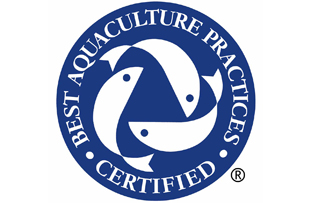 ance’s (GAA) Best Aquaculture Practices (BAP) program announced on Tuesday it will pilot Global Seafood Sustainability Initiative (GSSI), a global sustainability certification benchmarking program founded in 2013.
ance’s (GAA) Best Aquaculture Practices (BAP) program announced on Tuesday it will pilot Global Seafood Sustainability Initiative (GSSI), a global sustainability certification benchmarking program founded in 2013.Peter Redmond, director of market development for GAA, said the invitation came late Monday night, and that GAA was glad to accept.
“We believe the marketplace is looking for a level playing field. And we believe that GSSI, through an [Food and Agriculture Organization] approach, is going to deliver that playing field. We’re very excited to be on the forefront of that and we always like to be first with something,” said Redmond.
Redmond and his colleagues were on hand at Seafood Expo Global in Brussels to discuss that news and also the recent recognition from the Monterey Bay Aquarium’s Seafood Watch program. Any shrimp products bearing two BAP stars will now have a yellow, or good alternative, rating from Seafood Watch.
“Previously everything that we serviced was red-listed, as is most aquaculture,” said Redmond. “Now we’re the only real mainstream supplier that has any type of product on a yellow rating on the Watch card. This highlights the effort of what we’re trying to do, not only in the marketplace but also in the NGO community. When we work together, we can solve some of the more simple issue and deliver a more favorable result.”
At the end of 2013, the annual output of BAP-certified shrimp farms totaled 132,000 metric tons.
The Seafood Watch determination came after an evaluation of BAP farm standards for finfish and crustaceans conducted by Seafood Watch staff. The process of benchmarking existing eco-certification programs against Seafood Watch criteria began more than two years ago when Seafood Watch business partners sought guidance in navigating a marketplace of proliferating global eco-certification programs.
GAA strengthened its certification requirements for habitat mitigation, water discharge and escapes.
Dan Lee, BAP standards coordinator, announced that a fifth star, zone management, is now available to aquaculture producers, adding on to the previously existing feed mill, hatchery, farm and processing plant standards.
Zone management certification, an indication of good coordination and collaboration in particular production regions, is available only to companies that have two stars.





